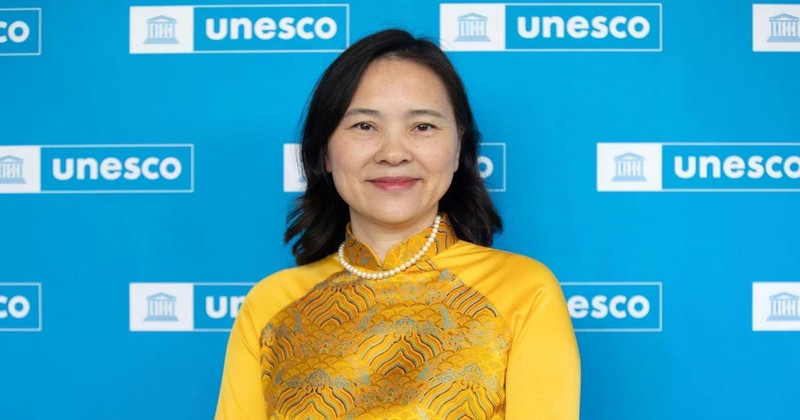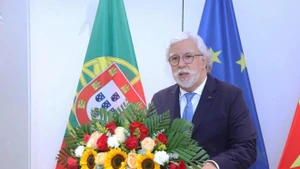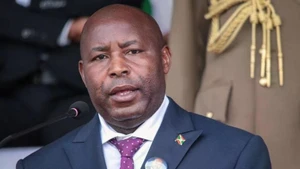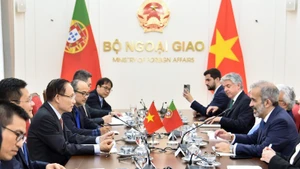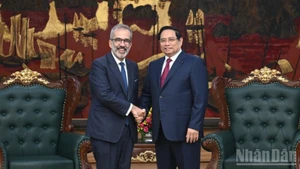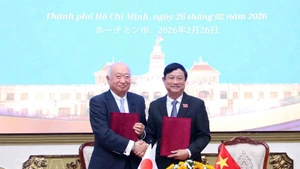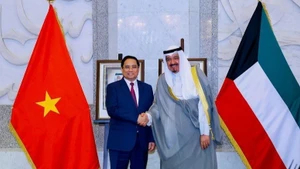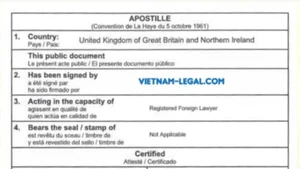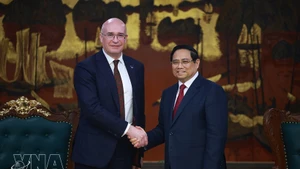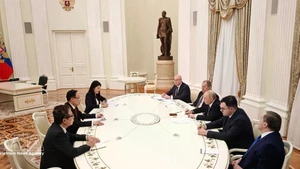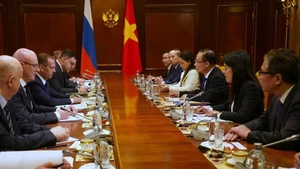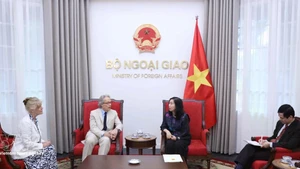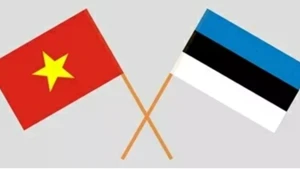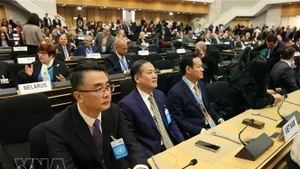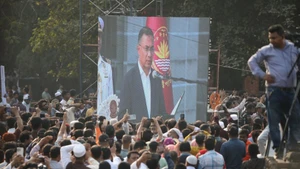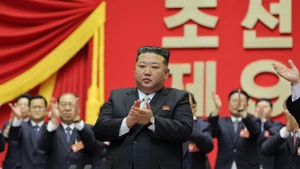The ambassador made the remarks in an interview with the Viet Nam News Agency on the occasion of UNESCO Director-General Audrey Azoulay’s official visit to Viet Nam from June 27 to 29.
Elevated role and global contributions
In recent years, Viet Nam has made notable strides in multilateral diplomacy, actively contributing to UNESCO’s global agenda on education, science, culture, information, and communication. The country currently holds key positions in six UNESCO mechanisms, including Vice-President of the 42nd session of the General Conference, a member of the Executive Board (2021–2025), and a seat on the World Heritage Committee (2023–2027). On June 20, 2025, Viet Nam was re-elected to the Intergovernmental Committee of the 2005 Convention on the Protection and Promotion of the Diversity of Cultural Expressions for a second consecutive term – a first among member states. Viet Nam has also supported major UNESCO initiatives, including the adoption of recommendations on Open Science and the Ethics of Artificial Intelligence (AI), and advocates for a standalone Sustainable Development Goal (SDG) on culture in the post-2030 agenda.
Vietnamese ministries and institutions have actively engaged in UNESCO’s networks and regional forums, both contributing and learning from international best practices in areas such as education, science, culture, information and communication.
The experiences shared by Viet Nam have been highly valued by many countries, particularly other developing nations. Viet Nam has increasingly hosted major UNESCO-related events, such as the 2023 international conference on harnessing UNESCO designations for sustainable development in Viet Nam and the 8th Asia-Pacific Geoparks Network Symposium in Lang Son in September 2024.
In October, Ha Noi will host the 32nd Session of the International Hydrological Programme (IHO) Regional Steering Committee for Asia and the Pacific, celebrating key milestones of UNESCO’s water-related programmes. Viet Nam has received additional UNESCO titles. In 2024 alone, Viet Nam was granted six new titles, bringing the total to 72. These span a wide range, from cultural, natural, and documentary heritage to Global Geoparks, Creative Cities, and Learning Cities.
Strengthened bilateral ties
Viet Nam-UNESCO relations have grown closer, marked by frequent high-level exchanges. In October 2024, Party General Secretary To Lam, who was also State President then, paid a historic visit to the UNESCO Headquarters – the first by a Vietnamese Party chief and head of state since the country joined UNESCO in 1976.
During the visit, he met with UNESCO Director-General Audrey Azoulay, reaffirming Viet Nam’s strong commitment to cooperation with UNESCO. The two sides also discussed major future directions for collaboration, aiming to further position Viet Nam as a model of effective partnership with the organisation.
Prime Minister Pham Minh Chinh also visited in 2021 and recently met Director-General Azoulay again in June 2025 during the UN Ocean Conference in Nice, France. In 2023, Foreign Minister Bui Thanh Son and Minister of Culture, Sports and Tourism Nguyen Van Hung also visited the UNESCO Headquarters to strengthen cooperation. From the UNESCO side, Director-General Azoulay visited Viet Nam in 2022 and returns this week for another official visit.
Other senior UNESCO officials have also visited, underscoring the depth of bilateral ties. These high-level visits and meetings have served as significant milestones in strengthening the comprehensive, substantive, and effective partnership between Viet Nam and UNESCO. Relevant agencies and Ha Noi authorities have also worked closely with the World Heritage Centre and the International Council on Monuments and Sites (ICOMOS), gaining strong support for the Thang Long Imperial Citadel conservation project. Both UNESCO and ICOMOS have repeatedly highlighted the project as a model of their collaboration with a nation in heritage preservation and promotion.
Strategc visit and future outlook
Ambassador Van Anh highlighted that Director-General Azoulay’s visit offers Viet Nam a chance to update UNESCO on its socio-economic progress and global integration after nearly 40 years of renewal (Doi Moi), while promoting its culture, people, and image. It also reaffirms Viet Nam’s support for multilateralism, international law, and UNESCO’s mission, as well as the country’s commitment to actively and responsibly contribute to the organisation’s shared goals amid growing global challenges.
During the visit, the two sides will review ongoing projects under the 2021–2025 cooperation framework and discuss a new memorandum for 2026–2030. New agreements with Vietnamese private partners in culture and education are also expected to be signed.
UNESCO Director-General Azoulay’s visit to Viet Nam is expected to mark a new milestone, further deepening the comprehensive and effective partnership between the two sides, contributing to global peace and sustainable development, enhancing Viet Nam’s international standing, and advancing Viet Nam into a new era of the nation's rise.
